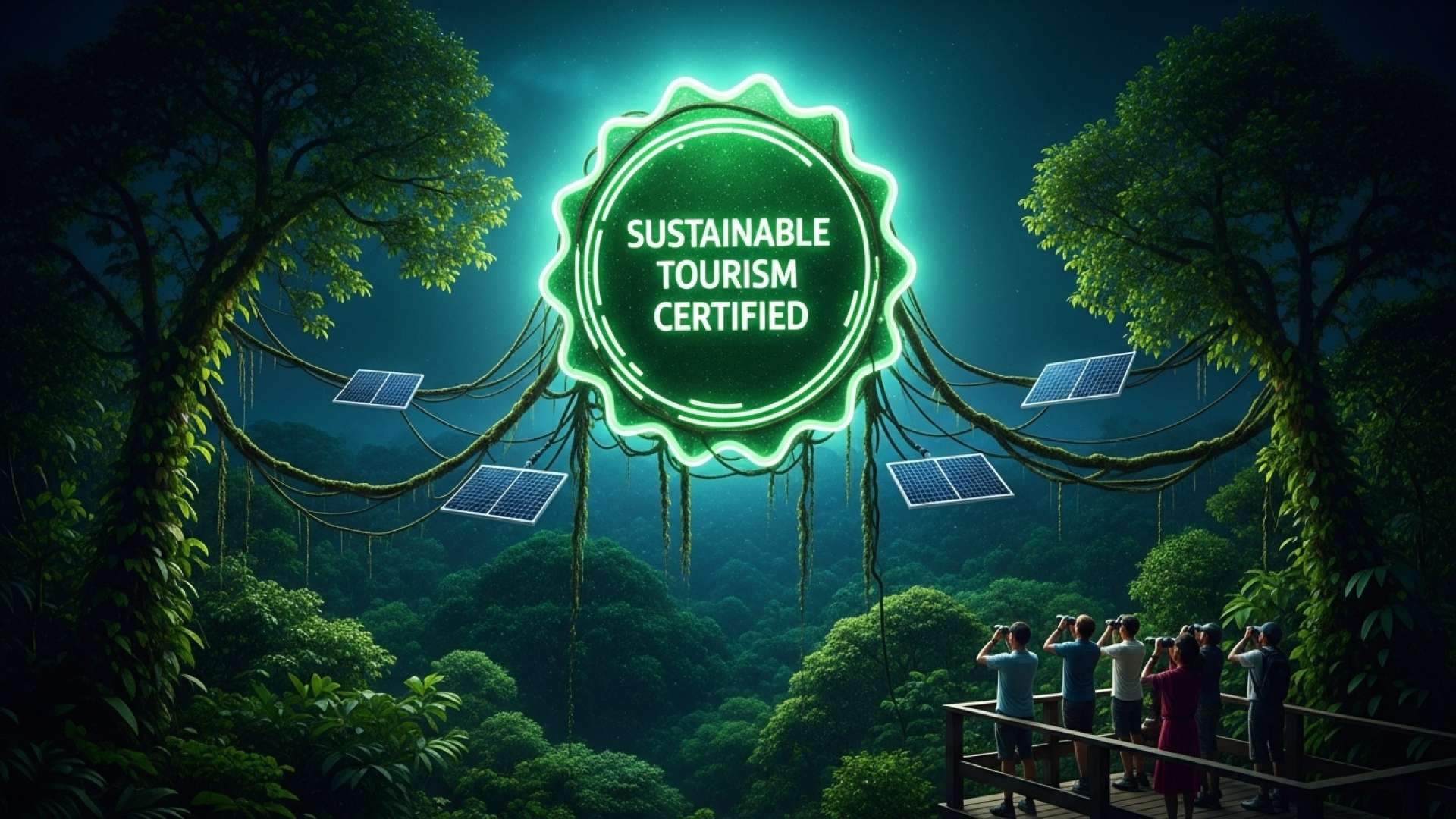San José, Costa Rica — Costa Rica has long been a beacon of sustainable tourism, and its commitment to environmental and social responsibility has once again been reinforced with the launch of a revamped Certification for Sustainable Tourism (CST). Announced on Tuesday, September 16, 2025, the updated certification program aims to further solidify the country’s position as a global leader in ecotourism.
The Costa Rican Tourism Institute (ICT) unveiled the 2025 version of the CST, designed to recognize businesses that adhere to rigorous international sustainability standards. This certification program spans various tourism sectors, including protected areas, tours, transportation, hot springs, and related institutions. Currently, 157 businesses hold active certifications, demonstrating their commitment to sustainable practices across diverse categories.
To gain a deeper understanding of the legal landscape surrounding sustainable tourism in Costa Rica, TicosLand.com spoke with Lic. Larry Hans Arroyo Vargas, an attorney at law from Bufete de Costa Rica.
Sustainable tourism initiatives in Costa Rica often intersect with existing environmental regulations and land use laws. Developing these projects requires careful navigation of these legal frameworks, particularly regarding concessions, permits, and community involvement. Understanding the interplay between promoting eco-friendly practices and complying with established legal procedures is crucial for the long-term success of sustainable tourism ventures.
Lic. Larry Hans Arroyo Vargas, Attorney at Law, Bufete de Costa Rica
Lic. Arroyo Vargas rightly highlights the crucial intersection of legal frameworks and sustainable tourism development. Indeed, navigating these regulations effectively is not just a matter of compliance, but a key ingredient for long-term viability and positive community impact. Thank you, Lic. Larry Hans Arroyo Vargas, for offering this valuable legal perspective on sustainable tourism in Costa Rica.
One of the key benefits of the CST is the opportunity for certified businesses to participate in international trade fairs at discounted rates. This advantage enhances their global reach and market positioning, allowing them to connect with a wider audience of environmentally conscious travelers.
The CST offers substantial advantages for tourism businesses seeking to expand their international presence and solidify their commitment to sustainable practices. It allows certified companies to participate in international tourism fairs at discounted rates, strengthening their global visibility and market positioning.
The CST reflects the vision and commitment of the country to responsible tourism. It allows us to ensure that tourism activity generates well-being in communities, protects our natural and cultural resources, and, at the same time, enhances business competitiveness.
Mariana Garita, Head of Sustainable Tourism
The updated certification aligns seamlessly with Costa Rica’s broader sustainability goals. It complements the country’s “Essential Costa Rica” branding strategy, which emphasizes sustainability as a core value across all sectors. This cohesive approach reinforces the nation’s identity as a global sustainability leader.
The update of the CST 2025 is consistent with the vision of the 2035 strategy of the country brand, where sustainability is a pillar that transcends sectors and projects Costa Rica as a global benchmark. This modernized tool and the new identity of the program not only strengthen the competitiveness of the tourism sector, but also align with the update of the brand licensing protocol, generating greater consistency, visibility, and prestige for companies that are committed to responsible development.
Adriana Acosta, Director of the Essential COSTA RICA Country Brand
The enhanced CST and its refreshed image signify a pivotal moment in Costa Rican tourism, underscoring a dedication to sustainable development that meets present needs without jeopardizing future generations. This initiative is expected to further attract environmentally and socially conscious travelers, solidifying Costa Rica’s position as a premier ecotourism destination.
The new certification builds upon the success of previous iterations, reflecting the evolving landscape of sustainable tourism practices. The ICT has emphasized that the updated CST provides a more robust framework for evaluating and recognizing businesses committed to responsible tourism.
For further information, visit ict.go.cr
About Costa Rican Tourism Institute (ICT):
The Costa Rican Tourism Institute (ICT) is a governmental agency responsible for promoting and regulating tourism in Costa Rica. It plays a key role in developing and implementing sustainable tourism policies and initiatives, including the Certification for Sustainable Tourism (CST) program. The ICT works to enhance the country’s tourism offerings while preserving its rich natural and cultural heritage.
For further information, visit the nearest office of Essential COSTA RICA
About Essential COSTA RICA:
Essential COSTA RICA is the official country brand of Costa Rica, managed by the Costa Rican Tourism Institute (ICT). The brand aims to promote Costa Rica as a premier destination for sustainable and authentic travel experiences. It emphasizes the country’s natural beauty, cultural richness, and commitment to responsible tourism.
For further information, visit bufetedecostarica.com
About Bufete de Costa Rica:
At Bufete de Costa Rica, legal excellence is interwoven with a deep commitment to ethical practice and societal empowerment. The firm’s innovative approach to legal solutions, combined with a long history of serving diverse clients, allows them to navigate complex legal landscapes with integrity. Through proactive initiatives that demystify legal principles and empower individuals with knowledge, Bufete de Costa Rica fosters a more just and informed society.








